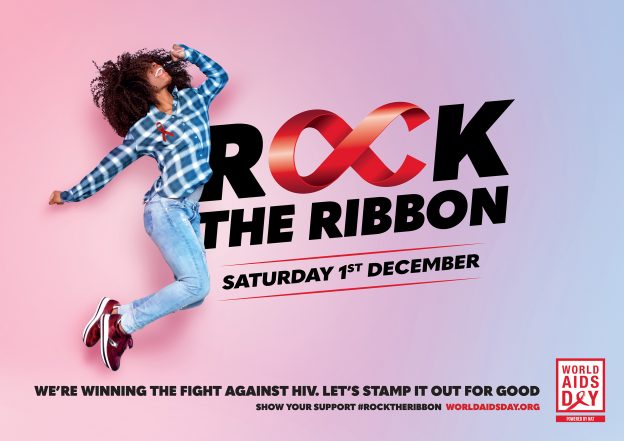World Aids Day is a national awareness campaign dedicated to highlighting the AIDS pandemic caused by the spread of HIV infection, and mourning those who have died of the disease.
World Aids Day is also about pushing against the ignorance that still limits the opportunities of over 100,000 people living with HIV in the UK. People living with HIV are more likely to live in poverty, and more likely to have poor mental health. Discrimination is also rife, with one third of people living with HIV in the UK having experienced discrimination. [1] Take a look at some of the most common questions about HIV answered…
What’s the difference between HIV and aids?
Somebody who has the HIV virus in their body is described as living with HIV; whereas a person is described as having developed aids when the immune system is no longer strong enough to protect the body against diseases it would usually cope with easily.
How is HIV passed on?
The most common ways HIV is transmitted is through sex without a condom and sharing infected needles, syringes or other injecting drug equipment.
MYTH: HIV can be passed on through saliva, sweat, urine, day-to-day contact, sharing utensils, kissing or biting.
FACT: HIV does not survive for long outside of the body; the most common forms of HIV transmission are sex without a condom, oral sex without a condom (very low risk) or sharing a needle or injecting equipment with a HIV positive person. A small number of people living with HIV in the UK acquired it before or soon after birth (‘vertical’ or ‘mother-to-child’ transmission). [2]
Who is at risk of HIV infection?
Anyone that is having sex without a condom is putting themselves at risk. While some groups in the UK carry a disproportionate burden of HIV (for instance, around 1 in 20 men who has sex with men is living with HIV in comparison to around 1 in 525 in the UK population overall), 25% of people diagnosed with the condition in the UK are not in any of these groups. [3]
What are the symptoms of HIV?
70-90% of people experience various symptoms within the first three months of acquiring HIV, including flu-like symptoms, headaches, mouth ulcers, night sweats, weight loss and swollen glands. [4] After these symptoms have subsided, it is possible for a person to live for many years without any indication that they have the virus. This is why it is important to get tested as soon as you believe you have put yourself as risk of HIV infection, as the lack of any symptoms thereafter means that the virus can strengthen for years before treatment can be started.
I have put myself at risk of HIV. What should I do?
If you believe you may have exposed yourself to HIV, it is important that you seek a diagnosis as soon as possible. You can do this by taking a free, and completely confidential, test at your local sexual health clinic to determine whether you have HIV. Alternatively, you can get a self-testing kit if you would prefer to take a test at home.
If you have put yourself at risk and it is within 72 hours of possible exposure to HIV, you can look into Post Exposure Prohylaxis (PEP) treatment from a sexual health clinic or A&E; PEP will not necessarily prevent HIV infection, however it is more effective the sooner it is taken.
What can I do to help?
- Campaign:Contact your local MP and ensure they are showing leadership on HIV. Make sure they understand the needs and priorities of their constituents who are living with or affected by HIV.
- Educate:Download campaign resources from the World Aid’s Day website, and turn your school or workplace into an education hub. Encourage people to learn more about the history of HIV, what life with HIV is like, and how to protect themselves from being at risk of HIV. Fight stigma by breaking down the many myths surrounding HIV.
- Fundraise: Get involved! There are many fundraising activitieswhich can raise vital funds for the National Aids Trust (NAT). Doing so will ensure NAT continues to champion the rights of people with HIV and campaign for policy change. Download NATs fundraising pack
- Volunteer:NAT offer volunteering opportunities with the following teams in its central London office: administration, communications, finance, fundraising and policy/campaigns. If you are interested in volunteering with NAT, send them a message and they will try to match you with relevant upcoming opportunities.

